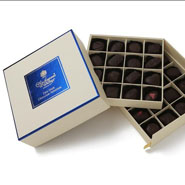- About
- Subscribe Now
- New York,
November 17, 2011

Luxury marketers should focus next year's messaging around the idea that affluent consumers deserve quality rewards to leverage the changing definition of luxury and the psychology of today's wealthy consumer, according to findings from a study by Ipsos Mendelsohn.
Despite recent concern over the state of the global economy, affluent consumers in the United States reported feeling more optimistic about 2012 than they had in the past few years. However, the economy has changed the way in which wealthy people define luxury now as opposed to a few years ago.
“We set out to understand how consumers are viewing luxury today in their own words,” said Steve Kraus, chief research and insights officer at Ipsos Mendelsohn, New York.
“A majority of consumers said luxury is different today than it was five years ago,” he said. “Five years ago, there was a shared sense of what luxury was and the good life and there was more talk about private jets and yachts.
“And today, luxury is a little bit more personal and intimate and individually defined.”
The Ipsos Mendelsohn Affluent Survey: Luxury in 2012 surveyed 2,050 people in the U.S. who have more than $100,000 in household income. The survey was conducted in September and October 2011.
Half-full
Approximately 35 percent of affluent consumers are optimistic about the U.S. economy. This is an increase from about 30 percent in July 2011, according to Ipsos Mendelsohn.
Additionally, 45 percent of respondents said they believe the economy will stabilize in 2013 or later. Only 15 percent felt that the economy would never stabilize.
Of the affluent consumers earning more than $250,000 in household income, 57 percent said that they would be better off in the upcoming 12 months than they have been in the past.
Also, 34 percent of respondents with more than $100,000 in household income plan to spend more in 2012 if the economy improves. For consumers making more than $250,000, 42 percent plan to spend more.
When asked in which categories consumers have spent more on in the past year, computers and electronics, automobiles, watches and jewelry and personal travel were the most-mentioned industries.
However, in the upcoming six months, affluent consumers plan to spend the most on luxury brands and services related to vacations and personal travel as well as computers and electronics.
Trips or treats
While many of the affluent consumers had an optimistic view on the future of the economy and do plan to keep spending on luxury goods, the effects of the recession did not go unnoticed.
In fact, the past few years of economic turmoil have prompted even wealthy consumers to rethink how they define luxury, why they buy expensive goods and how they spend.
Ipsos Mendelsohn asked consumers a number of open-ended questions to gauge their definition of luxury and daily spending habits.
The survey found that 65 percent of affluent consumers feel that the definition of luxury has changed over the past five years.
A major trend found among the affluent consumers is that they are just as happy rewarding themselves with small luxury indulgences as they are buying big-ticket items.
For example, 92 percent of respondents agreed that “small indulgences can be just as meaningful as purchasing a high-end luxury product.”
Ipsos coined these small luxury indulgences “treats,” and found that 73 percent of respondents treat or reward themselves at least once a month.
These treats included things like a high-end spa pedicure, an expensive glass of wine at dinner or tickets to a sporting event or live show.
To leverage this idea of small, intimate luxuries, marketers should focus on feeding the affluent consumer’s craving for a reward.
“We really see luxury, especially smaller, intimate treats, as fueling a person’s desire and satisfying their psychological feeling of ‘I deserve,’” Mr. Kraus said. “They don’t talk about status symbols or brands as badges.
"It is about a much more personal, psychological, self-esteem enhancing idea," he said. “Talking about how this is something they deserve is a good choice for marketers.
“It’s about getting the tone of the messaging right.”
Final Take
Kayla Hutzler, editorial assistant at Luxury Daily, New York
Share your thoughts. Click here